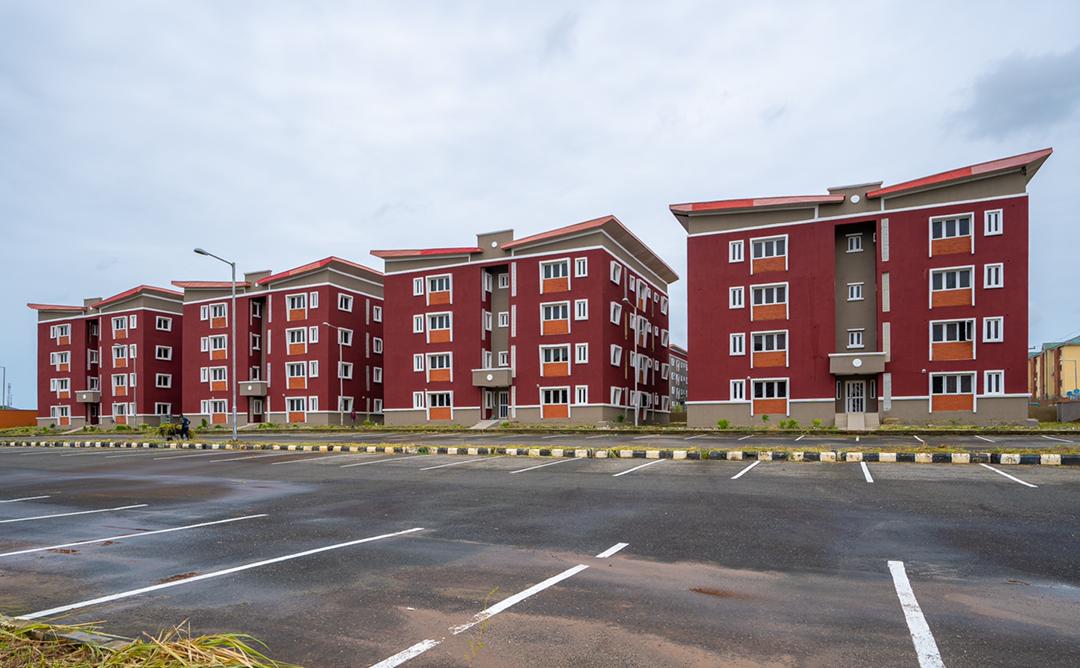In Lagos, Nigeria’s economic nerve center and one of Africa’s fastest-growing cities, real estate is often driven more by speculation than substance. With low barriers to entry, virtually anyone with a smartphone and social media account can style themselves a property “expert.” Flashy billboards with lofty promises—“Buy now, 300% ROI in 6 months!”—dot the city, luring buyers with dreams that rarely match the underlying economics. But amid the noise, Olabisi “Bisi” Odusanya has built a reputation by doing what few others in the market attempt: grounding investment decisions in numbers, data, and facts.
Bisi didn’t plan to enter real estate. Fresh out of university with a degree in Banking & Finance, she joined CW Real Estate, a growing brokerage firm in Lagos. Its CEO was data-obsessed, a trait that would shape her view of the market early on. “I remember going to Pinnock Beach and Off-Spar Estates when they were still mostly empty plots,” she recalls. “I wanted to understand how ongoing development would drive long-term value, not just for that property, but for the entire area.”
That perspective, one focused on urban transformation and long-range value drivers, quickly set her apart. While most peers marketed listings, Bisi began building the firm’s first market intelligence reports. A 2019 analysis she led earned media coverage in Nigeria’s top property publications, and more than tripled CW’s monthly leads. Revenue jumped 900% that year, but she was only getting started.
Over the next few years, Bisi helped drive over $22M in Lagos-based real estate projects. Her standout achievement was the $12M Ibeto by Elara development in Victoria Island, where she built pricing models that secured 20% of units sold, before the project was even 10% complete. Today, the development has generated over 200 jobs and attracted new waves of institutional and diaspora investor interest.
Her work extended across Lagos’ prime and emerging districts, from Ikate to Lekki Phase 2. With predictive models built around rental yields, migration patterns, and infrastructure projects, Bisi guided investor portfolios that returned upwards of 30%, particularly in short-let and long-hold strategies around Oniru, a high-demand residential hub on Lagos Island.
In one case, she helped a Nigerian investor living in the U.S. more than double his property budget, from ₦50 million to ₦105 million, after modeling short-let returns in Oniru. “We saw 80% occupancy rates annually,” she says. “Within two years, he exited with a strong profit. That model still forms the basis of my work today.”
Her affinity for numbers led her to pursue a Master’s in Business Analytics at the University of Louisville in the U.S.. “My aim is always the same, whether in Lagos or Louisville: help people see the real story behind the data.”
Bisi has also contributed to the academic understanding of Nigeria’s fragmented property markets. Her research papers—Apapa Precedent and Emerging Real Estate Markets—published on SSRN and ResearchGate, have been read by hundreds of professionals. In them, she challenges some of the most common narratives in Nigerian real estate.
“People love to say land in Banana Island was ₦7 million in 1993. But they skip the exchange rate at the time, or ignore inflation. You can’t make investment decisions on those numbers. They’re misleading,” she says.
Her current research dives deeper into how macroeconomic factors such as currency volatility, inflation, and infrastructure pipelines interact with local property prices. She believes this kind of contextual insight is missing from many investor pitches in Nigeria. “Sometimes, telling the truth costs you,” she admits. “I’ve lost commissions by being honest with clients. One bought land in Ibeju-Lekki despite my advice against it. A year later, it underperformed, and he came back to me.”
In the U.S., where data quality is strong in some areas but inconsistent in others, she hopes to improve outcomes for individual investors in underserved segments of the American market, from emerging cities to specialized property classes, and strengthen the country’s position as a trusted base for international real estate transactions. “No matter where you are in the world, be it an advanced or a developing economy, clear, actionable insights can help investors assess risk more accurately and spot overlooked opportunities, both domestically and in foreign markets,” Bisi says.
She also sees a unique opportunity to serve the African diaspora, enabling potential investors, many of them U.S.-based, to confidently participate in African real estate markets. By replacing opacity and speculation with verified data, she aims to eliminate the misinformation, fraud, and distrust that have long deterred cross-border investment. This would not only open profitable channels for investors but also create stronger links between U.S. capital and high-growth markets in Africa.
Her proposed solution: build a cross-border data platform tailored to diaspora investors. One that shows actual ROI projections, infrastructure timelines, and risk assessments, translated into simple, actionable insights. “I want someone in Atlanta or London to log in and see: Here’s what you’d make investing in Oniru. Here’s the risk. Here’s the upside. All verified. No fluff. Just data.”
Mentorship is also a key part of her plans. Having benefited from strong mentors in her early years, she hopes to groom the next generation of analysts who are both data-savvy and grounded in ethical standards.
“We don’t need more hype,” she says. “We need more real analysts. People who can tell the truth and explain why the numbers matter. That’s what builds trust. That’s what builds markets.”
As for legacy, Bisi isn’t aiming for the most sales or the biggest deals. Her metric of success is bringing greater clarity to financial markets. “I want to be known for telling the truth with data. Clarity is what creates value. That’s the future I’m building.”





